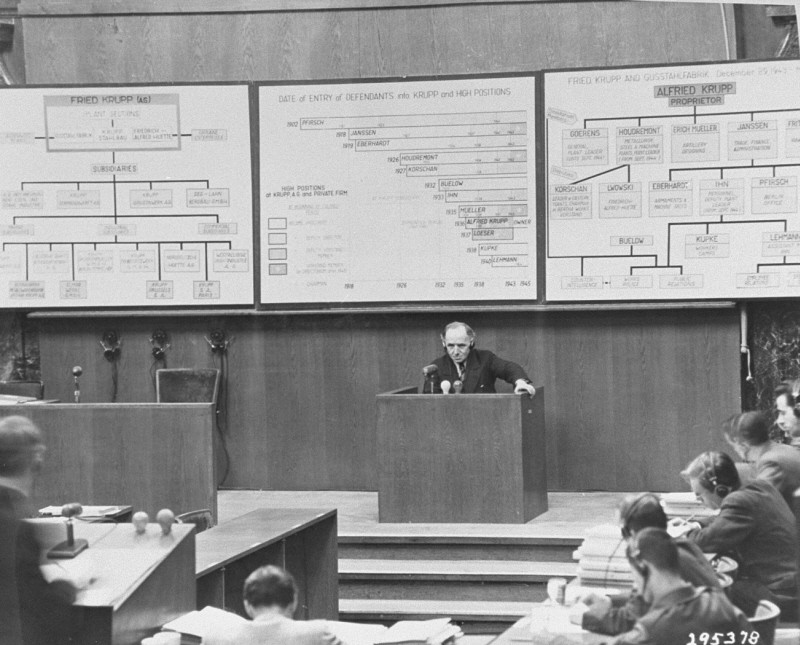
Subsequent Nuremberg Proceedings
After World War II ended, the Allies established courts in each of their occupied zones in Germany to prosecute German officials for their role in the commission of war crimes, crimes against peace, and crimes against humanity. American military tribunals in Nuremberg, Germany, presided over 12 major proceedings against leading German industrialists, military figures, SS perpetrators, and others. These are known as the Subsequent Nuremberg Trials.
On December 20, 1945, the Control Council for Germany enacted Law No. 10 to establish a “uniform legal basis in Germany for the prosecution of war criminals and other similar offenders other than those dealt with by the International military Tribunal”. After the conclusion of the International Military Tribunal at Nuremberg, General Telford Taylor was appointed as chief prosecutor for what became known as the Subsequent Nuremberg Trials under the auspices of the Office of Military Government “to try and punish persons charged with offenses recognized as crimes in Article II of the Control Council Law No. 10.”
Since the International Military Tribunal had already established the criminality of war crimes, aggressive war, and crimes against humanity, these trials were for the purpose of determining the guilt of second-tier Nazis accused of those crimes. In total the United States indicted 183 defendants in 12 subsequent Nuremberg trials. These resulted in 12 imposed death sentences, 8 life sentences and 77 terms of imprisonment. Other defendants were acquitted. As a result of postwar clemency, many sentences were later commuted to shorter terms by the reviewing authorities, or the convicted individual was released as a result of time already served.
The 12 subsequent trials were:
- Case #1, The Medical Case
- Case #2, The Milch Case
- Case #3, The Justice Case
- Case #4, The Pohl Case
- Case #5, The Flick Case
- Case #6, The I.G. Farben Case
- Case #7, The Hostage Case
- Case #8, The RuSHA Case
- Case #9, The Einsatzgruppen Case
- Case #10, The Krupp Case
- Case #11, The Ministries Case
- Case #12, The High Command Case
Critical Thinking Questions
- Beyond the verdicts, what impact did the trials have?
- Besides military participants, what other professionals were charged with crimes in the wake of the Holocaust?
- How have some professional codes of conduct changed after the Holocaust?

